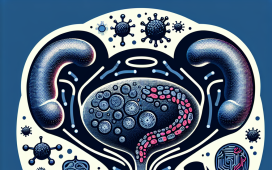The human genome is the complete set of DNA that makes up a human being. It is made up of about 3 billion base pairs, which are the building blocks of DNA. The genome contains all the instructions that our cells need to function.
Genetic testing is a process that analyzes a person’s DNA. It can be used to identify changes in DNA that are associated with diseases, to determine a person’s risk of developing a disease, or to track a person’s response to treatment.
Personalized medicine is a type of medicine that takes into account a person’s individual genetic makeup. It uses genetic information to tailor treatments to the specific needs of each patient.
Genetic testing and personalized medicine are rapidly evolving fields that have the potential to revolutionize the way we diagnose and treat diseases.
How Does Genetic Testing Work?
Genetic testing can be used to analyze a person’s DNA in a variety of ways. One common method is called polymerase chain reaction (PCR). PCR is a technique that copies a specific section of DNA millions of times. This allows scientists to study the DNA in detail.
Another common method of genetic testing is called sequencing. Sequencing is a process that determines the order of the base pairs in a DNA molecule. This allows scientists to identify changes in DNA that are associated with diseases.
What Can Genetic Testing Be Used For?
Genetic testing can be used for a variety of purposes, including:
- Diagnosis: Genetic testing can be used to diagnose diseases, such as cancer, cystic fibrosis, and sickle cell anemia.
- Risk assessment: Genetic testing can be used to assess a person’s risk of developing a disease, such as breast cancer or heart disease.
- Treatment planning: Genetic testing can be used to plan treatment for diseases, such as cancer.
- Drug response: Genetic testing can be used to predict how a person will respond to a particular drug.
- Research: Genetic testing is used in research to identify genes that are associated with diseases and to develop new treatments for diseases.
What Are the Benefits of Personalized Medicine?
Personalized medicine has the potential to improve the way we diagnose and treat diseases. It can help to:
- Identify the best treatment for each patient: Personalized medicine can help to identify the best treatment for each patient based on their individual genetic makeup.
- Reduce side effects: Personalized medicine can help to reduce side effects by ensuring that patients are only given treatments that they are likely to respond to.
- Improve patient outcomes: Personalized medicine can help to improve patient outcomes by ensuring that patients receive the right treatment at the right time.
What Are the Challenges of Personalized Medicine?
Personalized medicine is still in its early stages, and there are a number of challenges that need to be addressed before it can become widely available. These challenges include:
- Cost: Personalized medicine is often expensive, which can make it difficult for some people to access.
- Accuracy: Genetic testing is not always accurate, which can lead to false positives and false negatives.
- Interpretation: The results of genetic testing can be difficult to interpret, which can make it difficult for doctors to make treatment decisions.
- Regulation: Personalized medicine is a rapidly evolving field, and there is a need for clear regulations to ensure that it is used safely and effectively.
Despite these challenges, personalized medicine has the potential to revolutionize the way we diagnose and treat diseases. As the field continues to develop, we can expect to see personalized medicine become more widely available and affordable.








